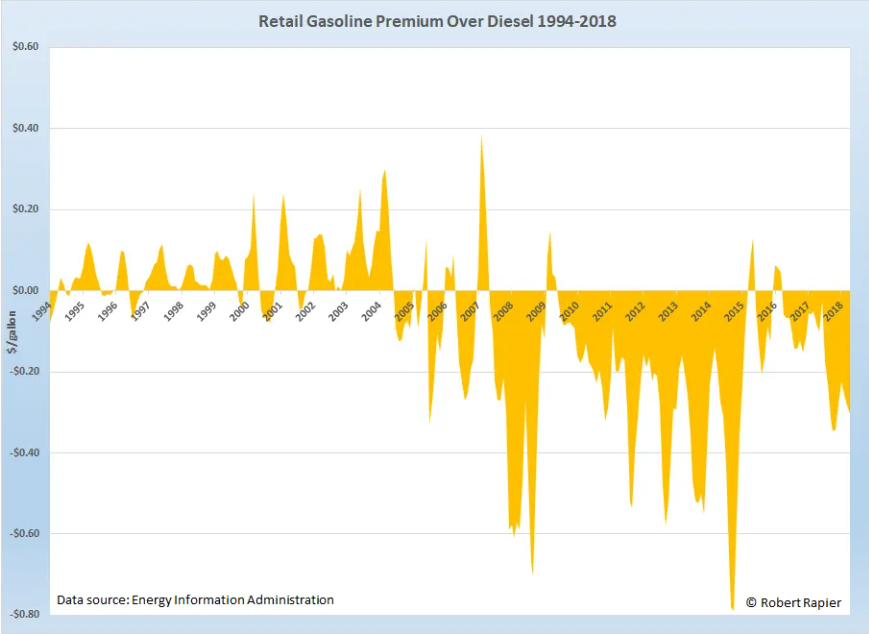The world is ticking down to a deadline that promises to have major ramifications in the global fuel markets. On January 1, 2020, the International Maritime Organization (IMO) will require the sulfur content in marine fuel to drop from a maximum of 3.5% down to 0.5%.
The rule is meant to curb pollution from ships. Combustion of high-sulfur fuels leads to the production of compounds like sulfur dioxide, which causes respiratory problems and produces acid rain.
This rule continues a trend of limiting the sulfur content in fuels (which originates from the sulfur contained in crude oil). Europe began tightening sulfur specifications in the 1990s, and the U.S. began to phase in ultra-low-sulfur diesel (ULSD) in 2006.
Prior to implementation of the ULSD standard in the U.S., gasoline often traded at a premium to diesel. But meeting the ULSD standards required refineries to invest billions of dollars into equipment to remove the sulfur. This drove up diesel prices in two ways.
First, the cost to produce diesel was simply higher due to additional capital and operating costs.
Second, this meant that refiners had to be more selective about purchasing high-sulfur (i.e., “sour”) crude oils. This drove down the demand for sour crudes and drove up the demand for lower sulfur (i.e., “sweet”) crudes, increasing the price differential between the two.
So refiners had to pay more for sweet crudes, or invest heavily into new equipment that could remove the sulfur from the sour crudes. The net result was that after 2006, the price differential between gasoline and diesel flipped.
According to data from the Energy Information Administration (EIA), in the decade prior to the implementation of ULSD, retail gasoline traded on average at a $0.04/gallon premium to retail diesel. In 2005, the year before the phase-in of ULSD began, diesel traded at an average of $0.09/gallon over the price of gasoline. And in the decade following implementation, diesel averaged $0.23/gallon over the price of gasoline.
